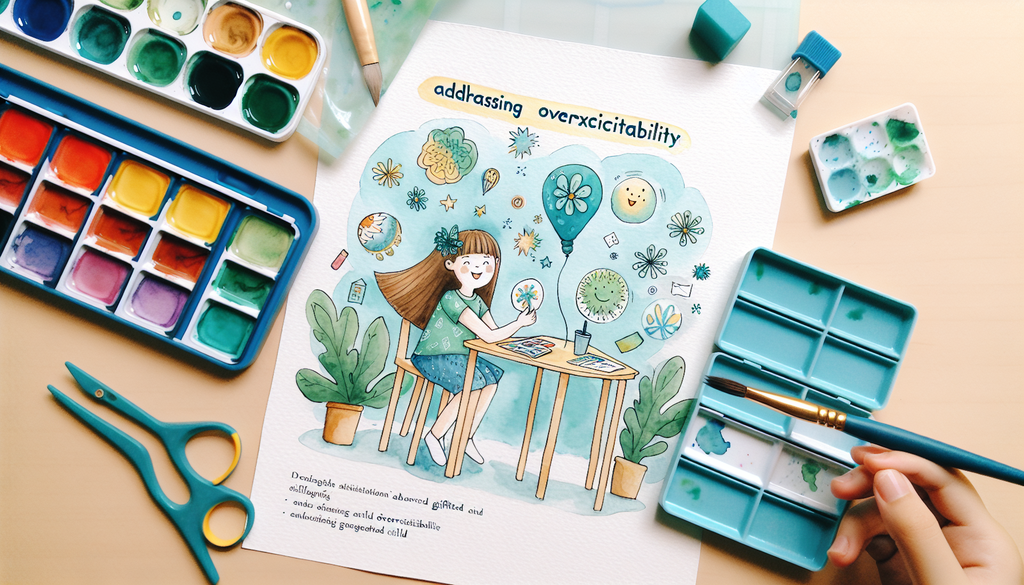Addressing Overexcitabilities in Gifted Children

Parents and caregivers of gifted children are often familiar with the term “overexcitabilities” as it applies to gifted individuals. First introduced by psychiatrist and psychologist Kazimierz Dabrowski, the theory of overexcitabilities is an integral part of understanding the emotional and psychological experiences of gifted individuals.
In a nutshell, overexcitabilities are an amplification and intensification of the typical sensory, emotional, intellectual, and imaginative experiences. There are five types of overexcitabilities - psychomotor, sensual, intellectual, imaginational, and emotional. In this post, we will explain these overexcitabilities further and provide actionable approaches for supporting gifted children who exhibit these intense behaviors and feelings.
Understanding the Five Overexcitabilities
-
Psychomotor: Gifted individuals with psychomotor overexcitabilities are often full of energy. They love movement, may be impulsive or prone to rapid speech, and may struggle with settling down their kinetic energy.
-
Sensual: These gifted children have heightened sensitivity to experiences through their senses and have a stronger appreciation for aesthetic beauty in their environment.
-
Intellectual: These children have insatiable curiosity, love problem-solving and theoretical thinking, and often engage in deep and analytical introspection.
-
Imaginational: These individuals take creativity to another level. They’re characterized by rich imaginations, love for inventiveness, and daydreaming, sometimes leading to difficulties differentiating between reality and the fantasy world.
-
Emotional: Gifted children with emotional overexcitabilities experience intense feelings, deep empathy for others, and often have high anxiety or depression levels. They are often described as “heart on their sleeve” individuals.
To understand more about asynchronous development, which often accompanies overexcitabilities in gifted children, check our post Inside the Mind of a Gifted Child: Understanding Asynchronous Development.
Effective Strategies to Support Gifted Children with Overexcitabilities
Gifted children with overexcitabilities require conscious support and understanding. Here are some ways to provide that support:
-
Create a Safe and Accepting Environment: Make your home a safe space for expressing feelings and ideas without judgment.
-
Physical Outlets: Arrange for physical activities to channel excess energy productively.
-
Nurture their Interests: Foster their love for learning and creativity by providing resources, support, and encouragement toward their areas of interest, such as arts, science, or music.
Knowing your gifted child’s unique strengths can go a long way in making this process smoother, as discussed in our post Giftedness Unwrapped: Identifying Your Child’s Strengths.
-
Teach Emotional Regulation Skills: Explicitly teach and model emotional regulation skills to children with emotional overexcitabilities. Read more about it in our post on Giftedness and Emotional Sensitivity: Nurturing Emotional Intelligence.
-
Professional Guidance: Sometimes, professional help may be needed to navigate intense overexcitabilities, especially if they affect the child’s or family’s overall wellbeing.
Gifted children with overexcitabilities possess a unique intensity that is like living life in high definition. As challenging as it may sometimes be, taking the time to understand these intensities and how they affect your child’s behavior, learning, and relationships, can make a huge difference in nurturing their potential and ensuring they feel understood and valued.
For additional resources on supporting your child’s unique development, you may find our post on The First Signs: Recognizing Giftedness in Young Children helpful.